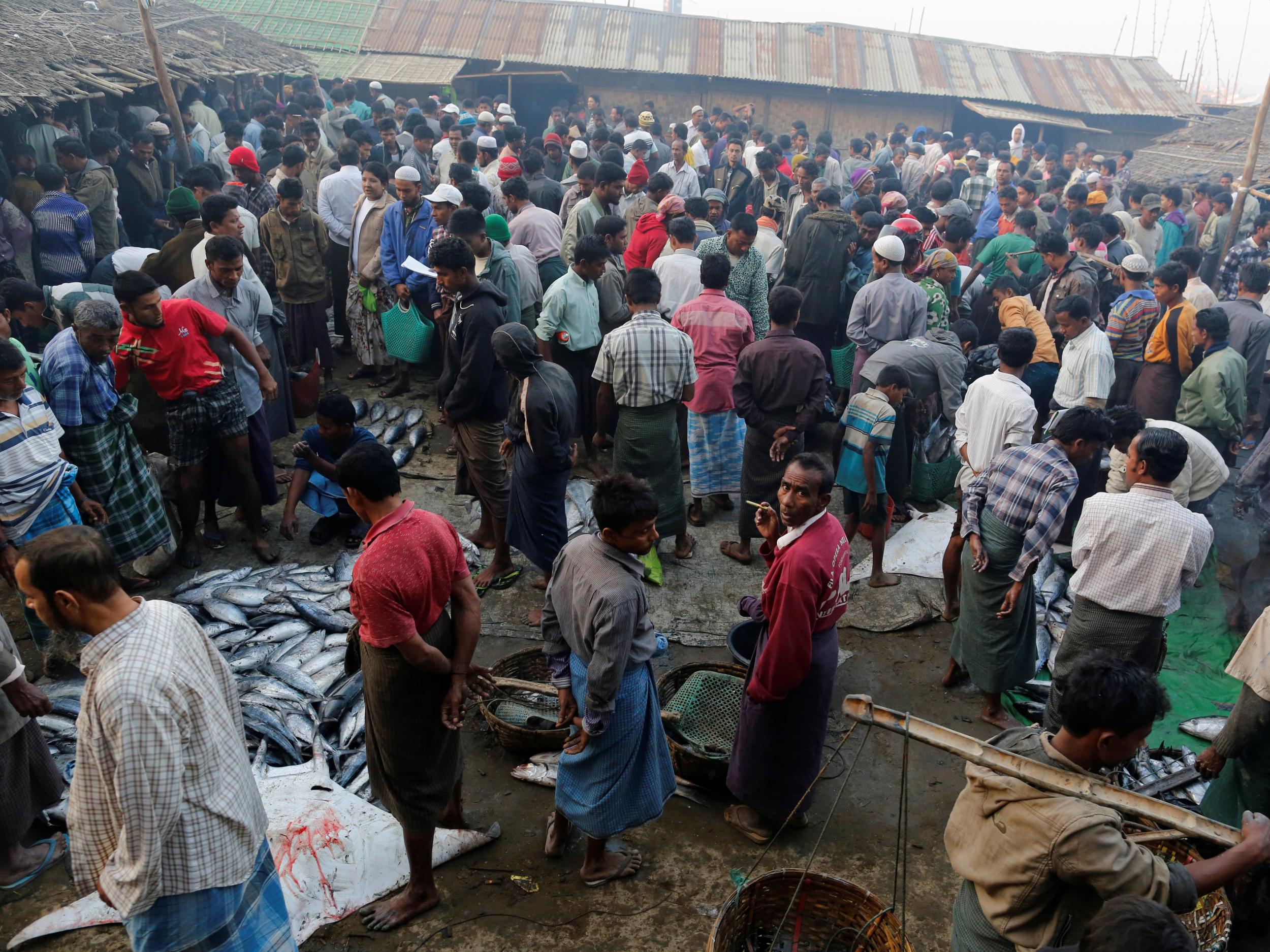Burma releases report rejecting allegations of human rights abuses against Rohingya Muslims
The army are accused of raping Rohingya women, shooting villagers on sight and burning down homes

The Burmese government’s inquiry into allegations of crimes against humanity and ethnic cleansing during a crackdown against the Rohingya Muslim minority last year has concluded no such crimes happened.
Rohingya militants killed nine border guards in October, sparking a response in which the army was accused of raping Rohingya women, shooting villagers on sight and burning down homes, sending an estimated 75,000 people fleeing to Bangladesh.
A UN report in February said security forces instigated a campaign which “very likely” amounted to crimes against humanity and possibly ethnic cleansing. This led to the establishment of a UN probe which is being blocked by Burma.
The Burmese inquiry accused the UN of making exaggerated claims in its report.

The country’s own 13-member investigation team – led by former head of military intelligence and now Vice President, Myint Swe – has been dismissed by human rights monitors as lacking independence to produce a credible report.
Speaking at the release of the Rakhine Investigative Commission’s final report, Vice President Myint Swe – a former general – told reporters on Sunday that “there is no evidence of crimes against humanity and ethnic cleansing as the Office of the High Commissioner for Human Rights claimed”.
He added that “some people from abroad have fabricated news claiming genocide had occurred, but we haven’t found any evidence”.
He also denied charges that there had been gang rapes by the military as it swept through Rohingya villages in a security clearance operation. The army was reacting to deadly attacks against border police posts by a previously unknown insurgent group in October 2016 in the Maungdaw area of Rakhine.
The panel said that the report did not take into consideration “violent acts” committed by the insurgents, instead focusing on the activities of the security forces.
Rights groups have previously expressed their doubts over the commission’s work, saying it lacked outside experts, had poor research methodologies and lacked credibility because it was not independent.

The commission’s report did accept that some things might have happened that broke the law, attributing it to excessive action on the part of individual members of the security forces.
The Burmese commission had received 21 reports from villagers of incidents of murder, rape, arson and torture by the security forces, but, unable to verify their veracity, it referred them to the authorities.
“We opened doors for them to complain to the courts if they have evidence that they suffered human rights abuses, but no one came to open a lawsuit until now,” Zaw Myint Pe, the secretary of the panel said.
The commission blamed the violence on the insurgents, accusing them of links to organisations abroad, “set up to destabilise and harm Myanmar (Burma)”.

The treatment of the roughly one million Muslim Rohingya has emerged as majority Buddhist Burma’s most contentious rights issue as it makes a transition from decades of harsh military rule.
The Rohingya are denied citizenship and classified as illegal immigrants from Bangladesh, despite claiming roots in the region that go back centuries, with communities marginalised and occasionally subjected to communal violence.
Additional reporting by agencies
Join our commenting forum
Join thought-provoking conversations, follow other Independent readers and see their replies
Comments
Bookmark popover
Removed from bookmarks